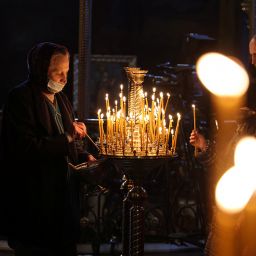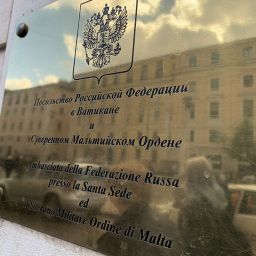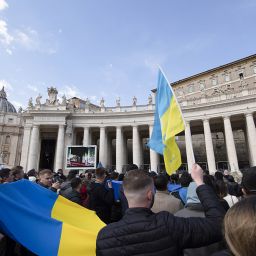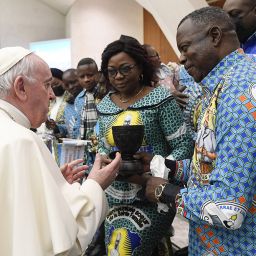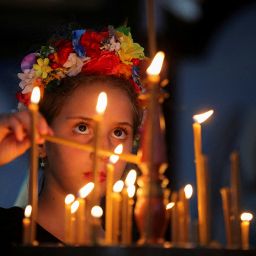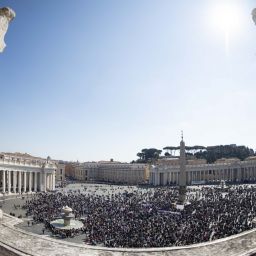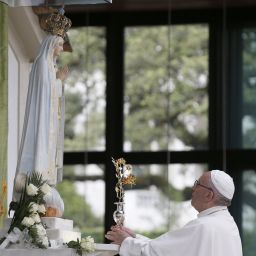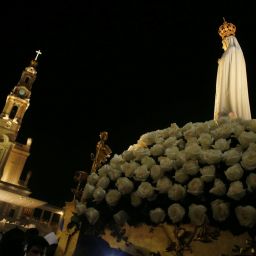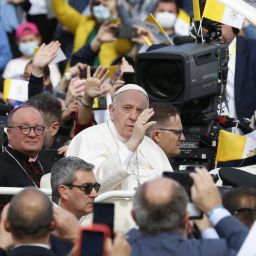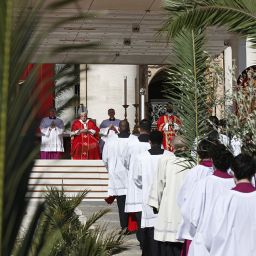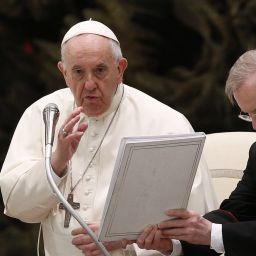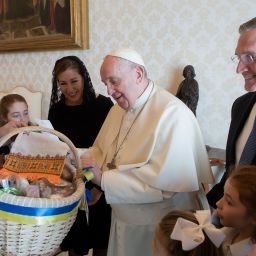By Carol Glatz
Catholic News Service
VATICAN CITY — The Gospel contains a great message of hope, “because it tells us that wherever we are lost and however we are lost, God always comes looking for us!” said the text for Pope Francis’ weekly general audience.
“We are able to hope because we know that the Father is waiting for us,” he wrote in the text for his audience April 16. “He sees us from afar, and He always leaves the door open.”
While Pope Francis was not holding his general audiences, since he was still recovering from double pneumonia and multiple infections, the Vatican has been publishing the texts prepared for the event each Wednesday.
During the Holy Year 2025, the pope’s audiences have focused on “Jesus Christ our hope.” After his series looking at Gospel stories of Jesus’ encounters with different people and how meeting Him changed their lives, the April 16 text began a new series looking at some parables and how they encourage the faithful to consider, “Where am I in this story?”
The first instalment focused on St. Luke’s account of Jesus’ parable of the prodigal son, which portrays “the heart of the Gospel of Jesus, namely God’s mercy,” the pope wrote.
Jesus tells this parable and the parables of the lost sheep and the lost coin to “the Pharisees and the scribes, who lamented that He ate with sinners,” Pope Francis wrote. “This is why it could be said that it is a parable addressed to those who are lost, but do not know it, and judge others.”
“The Gospel is intended to give us a message of hope,” because it says whenever a child of God is lost, God is seeking or waiting for him or her, he wrote.
“Love is always a commitment; there is always something that we must lose in order to go toward the other,” the pope’s text said.
The younger son in the parable thinks only of himself, which can be seen in some people who “are unable to maintain a relationship because they are selfish,” he wrote. Instead of “finding” themselves by running off, they lose themselves “because only when we live for someone do we truly live.”
“This younger son, like all of us, hungers for affection; he wants to be loved. But love is a precious gift; it must be treated with care. Instead, he squanders it; he disregards it; he does not respect himself” and makes himself vulnerable to a slavelike relationship for affection, he wrote.
“Only those who truly love us can free us from this false view of love,” he wrote.
The pope praised Rembrandt’s 17th-century painting, “The Return of the Prodigal Son,” for how the painter depicted the young man with a shorn head, “like that of a penitent,” but also like a child, “because this son is being born again; and then the father’s hands: one male and the other female, to describe the strength and tenderness in the embrace of forgiveness.”
However, the pope wrote, Jesus tells this parable to those whom the eldest son represents — the one who always stayed at home with his father, yet was distant from him in his heart.
“This son may have wanted to leave too; but out of fear or duty, he stayed there in that relationship,” the pope wrote. “Paradoxically, it is precisely the eldest son who in the end risks being left out, because he does not share his father’s joy.”
“The father goes toward him too. He does not reproach him or call him to duty. He wants only that he feels his love. He invites him to enter and to leave the door open,” the pope wrote.
Pope Francis asked the faithful to consider “where we are in this wonderful tale and let us ask God the Father for the grace that we too can find our way back home.”
Cutline for featured image: Empty chairs are seen in St. Peter’s Square at the Vatican April 9, 2025. Since Pope Francis is convalescing, he was not able to hold his usual weekly general audience with pilgrims and visitors. (CNS photo/Lola Gomez)


